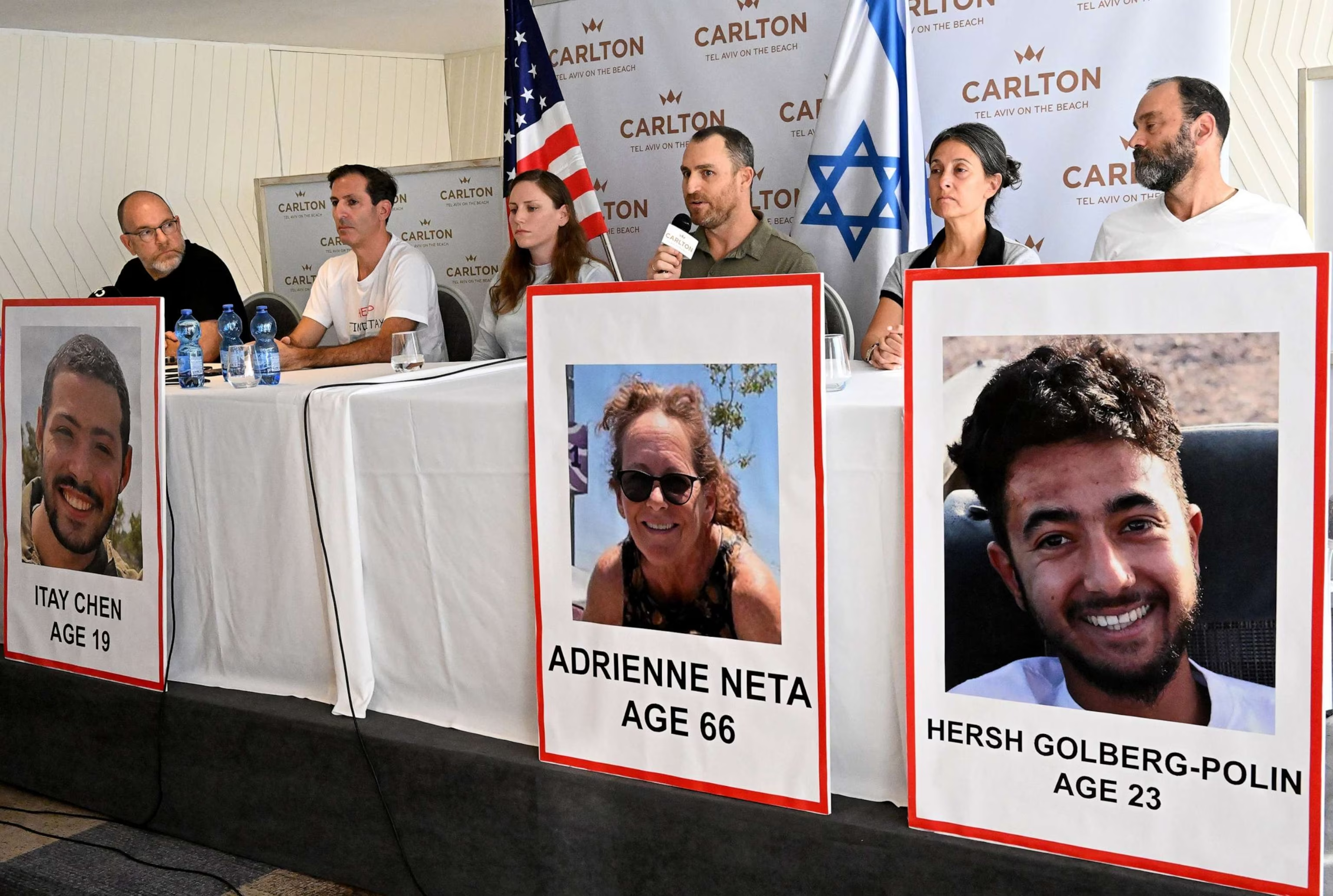Hamas' hostages: What happens next?
As the days drag on since Hamas terrorists launched an attack on Israel, pressure is building for the U.S. and Israel to help the scores of hostages believed to be held by Hamas across Gaza -- but both countries appear to have limited and very difficult options.
President Joe Biden confirmed Tuesday afternoon that Americans are among the hostages and that 14 Americans were killed in the fighting in Israel.
"We now know that American citizens are among those being held by Hamas," Biden said at the White House. "I've directed my team to share intelligence and deploy additional experts from across the United States government to consult with and advise Israeli counterparts on hostage recovery recovery efforts because as president, I have no higher priority than the safety of Americans being held hostage around the world."
The U.S. has started reaching out to the families of U.S. citizens missing in Israel as part of its efforts to identify American citizens that may be among the 100 to 150 hostages Israel's ambassador to the United Nations estimates are being held by Hamas, according to one official. Due to the dynamic situation and lack of visibility inside Gaza, the administration still can't say how many Americans may be detained.

U.S. officials are somewhat reluctant to shine a spotlight on any American who may have been captured for fear that they could be singled out by Hamas. But in private conversations aimed at encouraging allies in the Middle East to use their leverage over Hamas to push for the detainees’ release held prior to Biden's Tuesday press conference, they stressed that Americans were almost certainly among the hostages, making this a matter of utmost importance for the U.S.
While the U.S. has also offered intelligence, surveillance, and reconnaissance (ISR) support to Israel's special operations forces, critics of the administration like former House Speaker Kevin McCarthy have called for a more direct approach.
However, the sheer scale of the current situation would demand nothing short of large-scale military operation, according to one official, and although circumstances could quickly change, the administration doesn't currently assess that a targeted rescue mission is feasible.
For its part, Israel has made no secret of its preparations for a ground assault on Gaza, and sources say the administration doesn't anticipate that Israel will wait on a resolution for the hostage situation before launching the operation if it ultimately decides to carry it out.
And despite prior prisoner swaps and reports that various countries are acting as "intermediaries,” there are no indications that Israel is open to negotiating with Hamas.
While the hostages will remain a primary focus for administration, U.S. officials are clear-eyed about the stiff odds facing any efforts to resolve the crisis, especially given that Hamas appears to have very to gain from freeing the prisoners.
ABC News' Morgan Winsor and Luis Martinez contributed to this report.
Disclaimer: The copyright of this article belongs to the original author. Reposting this article is solely for the purpose of information dissemination and does not constitute any investment advice. If there is any infringement, please contact us immediately. We will make corrections or deletions as necessary. Thank you.





